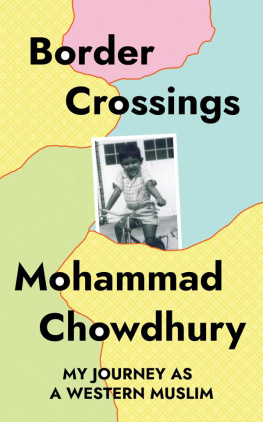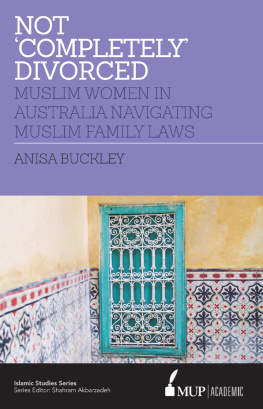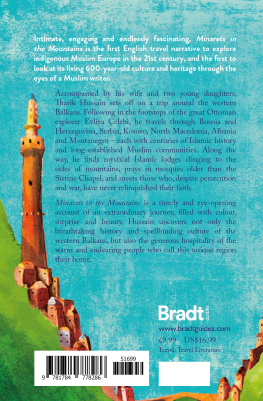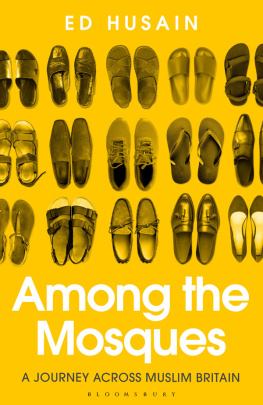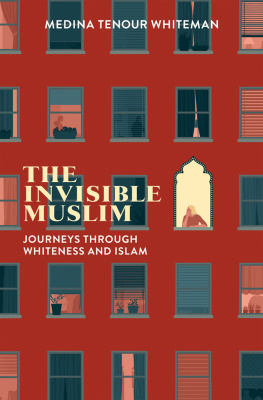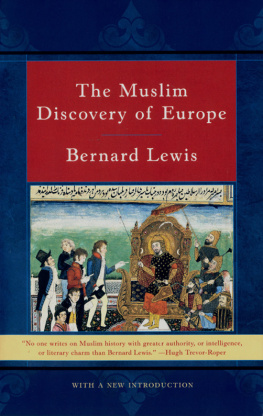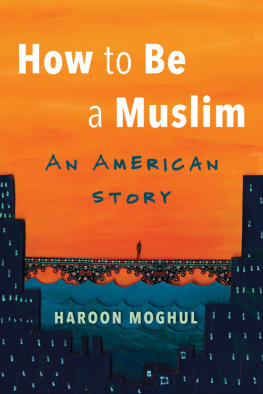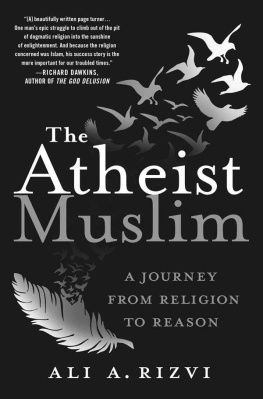
With special thanks to

www.pubalibangla.com
For Rehana
Contents
Prologue
Heathrow Airport, London
Good morning, Sir. Could you step aside please? I would like to ask you a few questions.
Sure, I reply, rubbing the tiredness out of my eyes, putting up no resistance to the familiar drill.
My questioner is evidently a government official undertaking extra surveillance following yesterdays terrorist alerts. I found out about the elevated security at Londons airports on BBC News before boarding the crowded British Airways flight fourteen hours ago.
Where are you arriving from today, Sir?
Dhaka. Bangladesh, I add, thinking that the sun must be setting there about now.
And what were you doing in Bangladesh, Sir? he says with a monotonous drone, leafing through my passport at the same time.
I was there on holiday, visiting relatives.
I look over the thin-framed, wispy-haired officer as he begins to examine my documents. His drab suit matches the grey, speckled carpet of Terminal 4s arrivals hall. Passengers silently weave through orderly queues, some speaking in muffled voices and others looking subdued from jet lag, a total contrast to the cacophony of loudspeaker announcements and disorganisation of Dhaka Airport. Where Heathrows carpets snuffle out noise, the gritty wheels of roller bags and lopsided trolleys click-clack across Dhaka Airports crackedup tiles. Back in the first-world silence of the UK, I am missing the homely untidiness of Bangladesh: the vibrant colours, humid smells and incessant raising of voices. From his tired attire I cannot determine whether the officer is from the Metropolitan Police or British Intelligence. He has a kind, bedraggled-looking and spotty face. The thinning hair on his head is longer at the sides than on top.
The blemishes on the maroon cover of my British passport include a crease that runs all the way down it, like a white-water spring descending a craggy Alpine mountain. The officer turns the pages with care, separating the leaves with meticulously shaped fingernails. His professionalism and duty to care momentarily cushion me from the cold reality of my travel experiences today, littered as they are with an incessant amount of scrutiny and suspicion over who I am, and why I am travelling. He too asks me about my reasons for travelling so much, about my family origins and, in particular, about my frequent visits to the Middle East.
I work for an international consulting firm and am involved in a number of assignments around the world, so I have to fly around frequently. Plus I travel a lot personally too, especially to the Middle East and Asia.
What about the trips to Syria, Sir, and to Lebanon, and Jordan? Were these for business also?
As he poses the question, I catch him noticing the gold British Airways frequent-flyer identification tag dangling from the strap of my knapsack. He cannot tell that I went to the West Bank last year, since at the conclusion of a nine-hour ordeal at the border crossing, Id requested the Israeli authorities not to put a stamp in my passport but to do so on a blank sheet of paper instead. Whilst his questioning is thorough, it is nowhere near as forensic as the Israelis, whose methods are purposeful and meticulous, full of mind games. I dont mention the West Bank trip.
Mostly those were holiday trips. One trip to Jordan was for business. I wince at the memory of that awful meeting in Amman some months ago when the executive we were negotiating with walked out of a heated session.
Do you have any particular reason for spending so much time in the Middle East?
I am learning Arabic and like going to the region to practise. And I go to Saudi Arabia from time to time to perform the Muslim pilgrimage at Makkah.
I feel a desire to get this questioning over with, and to get out of Heathrow and make my way into London.
Where were your parents born? the officer asks.
My parents, I repeat back, looking at the officer but mumbling the words under my breath.
Since childhood I have been forced to deal with such inquiries, a necessary evil these days for many Muslims who travel a lot, their privilege of anonymity in travel temporarily withdrawn. As time has gone on, I have developed my techniques to a point where I can confidently challenge, when needed.
You dont really need to know where my parents were born, do you? I reply, nodding my head gently in the direction of my passport, the Queens coat of arms showing proudly on its cover.
I am employing the same tactic I used successfully when stopped in Milans Linate Airport a few weeks ago, but that was with a smiling and casual Italian immigration officer who looked like he just wanted to practise his English. Today, I fear Ive made an error of judgement by challenging this man barely a few weeks after the 7/7 terrorist attacks in London. The officer looks back at me, speechless, and as the seconds tick by, I wonder what will happen now.
Have a good day, Sir, he smiles back.
I wheel my suitcase up the ramp towards the Heathrow Express and wonder whether I can reach the canteen in South Bank before they stop serving lunch. It is 12:08. If the Bakerloo Line is running OK, I can just make it.
One
British, Not Western
I was born and raised in Britain but it wasnt till I was in my mid-thirties that I was referred to as a Westerner. Surprising you might say, given that as a child I spoke English with a perfectly formed middle-class accent, at Oxford University I wrote compelling essays on the values of liberal democracy, and I started my career at a blue-blooded consulting firm founded during the Victorian pomp of Imperialist Britain. Despite the racism of the 1980s and 90s, as a brown-skinned young person in Britain being accepted as British was already becoming possible. But acceptance as a Westerner wasnt as straightforward. This required being seen as someone who subscribed to the dominant culture of the white, English middle class something which for me as an observant Muslim of Bangladeshi ancestry was optically impossible to do. The fact that I subscribed to the Western ideals of freedom, democracy and liberalism didnt count for much. In the early days, I wasnt even going to be accepted as one of us even in terms of national identity. Signs I exhibited of British patriotism would regularly be slapped back in my face by way of a taunt or often unintended slight which put me back in the box of the try-hard outsider. At the same time, my family community didnt see me as proper Bengali either, giving me the cold shoulder treatment and regarding me as an Englishman in brown skin. English people see me as brown, and Bangladeshi people see me as white. So, there I was, the subject of an at times unrewarding, no-win upbringing of coping with being the outsider a lot of the time, stuck between incompatible worlds. My cultural relevance was not appreciated. I was a migration rounding error.
It was an Oxford friend who described me as the Westerner, one drizzly afternoon as we both sat at a favourite caf in Marylebone.
Mohammad, your way of thinking and your ideals around freedom, social responsibility, equality and respect mean you are basically a Westerner.
We had debated this point many times in the past, about the parallels between the philosophy of Plato, John Stuart Mill and Adam Smith and the social conscience and economic principles found within the teachings of Islam.

